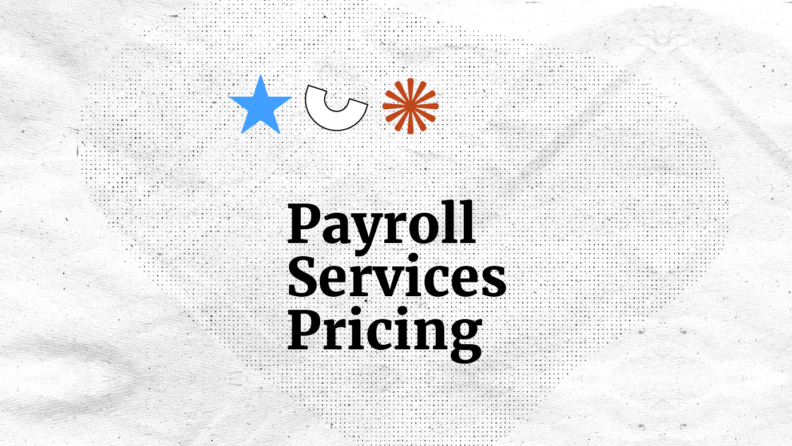When you enter the world of payroll services, you might feel overwhelmed by the pricing complexities, whether you're considering in-house payroll or outsourcing payroll. I've been in your shoes, trying to unravel the different cost factors and pricing models. Understanding these aspects is essential for running payroll and making smart decisions for your team.
[Transparent pricing] is a huge barrier because I get hired for different contracts to find new payroll platforms. Vendors offer different tiers, so finding the right balance between usability and cost is huge.
You want clarity on what you're paying for, whether there are hidden fees, and how different models stack up. You may have encountered unexpected costs or are trying to avoid them altogether. Either way, handling these details can make a big difference in your budgeting and planning.
For more insights on differentiating between payroll software and payroll services, I'll guide you with clear advice and practical insights in this guide.
How Much Does Payroll Service Cost?
Payroll services typically charge a base fee between $5 and $17 monthly fee per employee, with pricing structures often based on a per-user model. You might encounter both monthly and annual contracts. Small businesses usually pay the lower end of the range, while medium—to—large enterprises expect higher costs due to add-on features and potential implementation fees.
Payroll Services Pricing Models
The typical pricing model for payroll service solutions is subscription-based, where you pay a monthly or annual per-employee fee. Other models include open-source and perpetual license options, where pricing might vary based on specific needs or a one-time payment. Here's a summary of different pricing models you might encounter:
| Pricing Model | How it Works |
| Subscription | You pay a recurring fee, often monthly or annually, usually per employee. |
| Open Source | Software is free to use, but you might pay for support or additional features. |
| Perpetual License | You make a one-time payment for lifetime access to the software. |
| Custom Pricing | Pricing is tailored to your specific needs, often requiring a consultation. |
| Tiered Pricing | Costs vary based on the level of functionalities or number of employees. |
Average Cost of Payroll Services
Here's a breakdown of the average costs for different pricing tiers of payroll services:
| Plan Type | Average Price | Common Features |
| Free Plan | $0 | Basic payroll processing, employee self-service portal, and limited HR support. |
| Personal Plan | $5-$15/user/month | Payroll tax filing, direct deposit, time tracking, time-off requests, and payroll processing. |
| Business Plan | $15-$25/user/month | Advanced payroll features, employee benefits administration, compliance management, and reporting tools |
| Enterprise Plan | $25-$50/user/month | Custom workflows, dedicated account manager, integration with HR systems, and advanced analytics |
Additional Payroll Service Costs to Consider
Beyond the average price point of payroll services, here are some additional costs to consider in your search:
- Upfront Costs: When signing up for a payroll service, you might face initial setup fees. These can include charges for customizations and initial consultations that you didn't budget for.
- Recurring Costs: Monthly or annual subscription fees can add up. To avoid surprises in your budget, be clear on what you're paying for each pay period.
Look beyond the upfront price and consider how additional features or modules might add to the cost over time. It’s important to make sure you’re not getting hit with unexpected fees later on.
- For companies managing payroll in multiple countries, recurring costs can vary widely depending on how providers handle foreign currency, tax compliance, and employment laws—factors that trusted international payroll providers are specifically designed to manage.
- Hidden Costs: Watch out for fees that aren't obvious from the start, like charges for additional services or features. These can sneak up on you when you least expect it.
- Data Migration: Moving your existing data to a new payroll system might come with its own costs. Sometimes, you must pay for technical support to ensure everything transfers smoothly.
- Training: Your team might need training to get up to speed with the new system. This can mean paying for workshops or online courses to ensure everyone knows what they're doing.
- Maintenance: Regular updates and system maintenance might not be included in your initial package. Keep an eye out for these ongoing costs to keep your system running smoothly.
- Hardware and IT Infrastructure: If your new payroll service requires specific hardware or IT support, factor in the cost of upgrading your equipment or hiring additional IT help.
Proving the ROI of Payroll Services
When you're trying to get everyone on board with a new payroll service, it can feel like an uphill battle. You know the headaches of manual processes and the chaos of year-end tax filings. To help you convince your team about the value of a payroll service, here are some straightforward tips you can use:
- Highlight Cost Savings: Show how intuitive payroll is a cost-effective solution that reduces errors and saves time. By calculating the hours saved, you can directly translate them into dollar savings.
- Emphasize Compliance: Explain how payroll services help keep your company compliant with tax laws. Point out the potential fines and penalties for non-compliance that can be avoided.
- Demonstrate Time Efficiency: Illustrate how faster payroll processes can be with automation. Compare the time-consuming nature of processing payroll manually versus using a payroll solution.
- Showcase Employee Satisfaction: Point out how timely and accurate workers’ compensation boosts employee morale. Share feedback from employees who have experienced payroll delays or errors.
- Present Data Security: Discuss how payroll services offer advanced security features to protect sensitive data. Highlight any concerns about data breaches and how these services mitigate those risks.
- Focus on Scalability: Explain how a payroll service can grow with the company. Describe how easy it is to add new employees or adjust to changes in the business.
There’s always room for negotiation on payroll software pricing. Ask for a volume discount! I always recommend trying to get a better deal based on your company’s growth and needs projection.
- Leverage Vendor Support: Mention the customer support and resources provided by payroll service vendors. Share how this support can assist during implementation and beyond.
- Illustrate Integration Benefits: Talk about how payroll services can integrate with other human resource (HR) systems apps. Show how this integration reduces duplicate data entry and improves overall efficiency.
With these tips, you're ready to make a compelling case for why a payroll service is a smart move for your company.
Questions to Ask Payroll Services Vendors
When you're looking for the right payroll services vendor, it can feel like you're navigating a maze of options and features. I've faced the same challenges, and I know how important it is to ask the right questions to ensure the solution aligns with your needs. Here's a list of questions to guide your decision-making process:
- What are the overall costs, including any hidden charges or additional fees?
- How well does the service scale with the growth of my company?
- Does your service integrate seamlessly with my existing technology stack, like HR system or accounting software?
- What are the ongoing maintenance requirements, and who handles them?
- How accessible and responsive is the customer support team?
- What's the onboarding process like, and how long does it take?
- Are there any limitations or restrictions in terms of features or usage?
- How often are updates and upgrades released, and at what cost?
- Can you provide references or case studies from similar payroll companies?
- What security measures are in place to protect my data?
With these questions in hand, you're ready to explore payroll service options confidently. Remember to ask about the vendor's experience in your specific industry to ensure they understand your unique needs.
Payroll Services Pricing: Final Thoughts
Choosing the right payroll services vendor is more than just a numbers game. It's about finding the right fit for your team's specific needs. When implementing payroll services, consider the unique aspects of your business. Maybe your team is growing rapidly, or perhaps you're juggling multiple locations. These factors can impact your vendor choice.
Think about a small business owner you know who switched payroll providers. They realized the initial setup cost was worth the time saved on manual calculations. Also, don't overlook customer support. When you face a payroll glitch two hours before payday, having a responsive payroll service provider can be a lifesaver.
Ultimately, it's about balancing cost with the service quality you need. Take the time to weigh your options, and remember, the cheapest isn't always the best. The right payroll service should make your life easier, not more complicated.
Methodology: We’ve been testing and reviewing HR management software since 2019. We’ve tested more than 2,000 tools for different HR management use cases and written over 1,000 comprehensive software reviews. Our pricing guides and software reviews are backed by extensive research and data from a large number of software vendors, users, and testers.
Disclaimer: As researchers and independent reviewers, our aim is to share information on typical software pricing structures to help our readers contextualize their purchase decisions. We are not providing financial advice, and encourage you to consult with a financial specialist as needed for your unique business case.
What’s Next:
If you're in the process of researching payroll services pricing, connect with a SoftwareSelect advisor for free recommendations.
You fill out a form and have a quick chat where they get into the specifics of your needs. Then you'll get a shortlist of software to review. They'll even support you through the entire buying process, including price negotiations.


